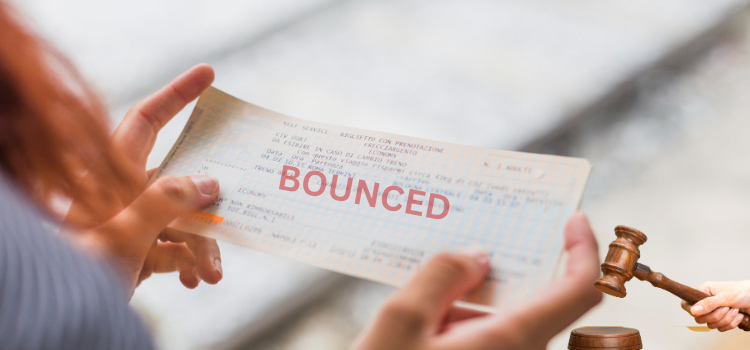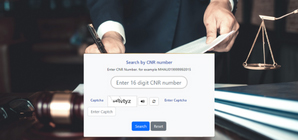A Step-by-Step Guide on Taking Legal Action for Cheque Bounce
Posted On : November 17, 2023

Table of Contents
Introduction
Cheque bounce is a common issue in India, which can have serious financial implications for both the payer and the recipient. When a cheque is dishonored or bounces due to insufficient funds, it is essential to understand the legal remedies available to protect your interests. This article provides a comprehensive guide on how to take legal action on cheque bounce in India.
Steps by Steps Process on Taking Legal Action on Cheque Bounce
The following are the details of the step by step process of how to take legal action on cheque bounce in India;
-
Issuing a Legal Notice
The first step in addressing a cheque bounce is to issue a legal notice to the defaulter. According to Section 138 of the Negotiable Instruments Act, 1881, the payee or holder of the bounced cheque must send a legal notice to the drawer of the dishonored cheque within 30 days of receiving the information about the bounce. The notice should demand the payment of the cheque amount within 15 days from the receipt of the notice. -
Filing a Complaint
If the drawer does not make the payment within 15 days of receiving the legal notice, you can proceed to file a complaint with the concerned jurisdictional magistrate court. The complaint should be filed within one month from the expiry of the 15-day notice period. You will need to provide the following documents when filing the complaint:- The bounced cheque.
- The original legal notice.
- An affidavit stating that the cheque was dishonored.
- A list of witnesses, if any.
- Other relevant evidence.
-
Court Proceedings
Once the complaint is filed, the court will initiate legal proceedings. The drawer of the bounced cheque will be summoned to appear in court. If the drawer fails to appear, a warrant may be issued for their arrest. During the trial, both parties will present their evidence, and the court will make a decision based on the merits of the case. -
Penalties and Compensation
If the court finds the drawer guilty of a cheque bounce, the drawer can be penalized with imprisonment for up to two years and/or a fine that may be more than the cheque amount. Additionally, the drawer may be ordered to pay compensation to the payee, which can be up to twice the cheque amount as per Section 138 of the Negotiable Instruments Act. -
Appeal
Either party can appeal the judgment within 30 days of the verdict. The appeal process allows for a reevaluation of the case by a higher court if there are legitimate grounds for dispute. -
Enforcement
If the drawer does not comply with the court's order, the payee can take legal action to enforce the court's judgment. This may include the attachment of the drawer's property or bank accounts to recover the cheque amount and compensation.
Leading Case Laws
-
Bhaskaran v. Sankaran Vaidhyan Balan (1999)
In this landmark case, the Supreme Court of India clarified the legal principles related to cheque bounce cases. It was held that the complainant, in order to secure a conviction under Section 138 of the Negotiable Instruments Act, 1881, must prove that:- The cheque was issued for the discharge of a debt or liability.
- The cheque was presented to the bank within the period of its validity.
- The cheque was returned by the bank unpaid.
This case emphasized that the burden of proof is on the complainant, and they must establish all the essential elements of the offense beyond reasonable doubt.
-
Dashrath Rupsingh Rathod v. State of Maharashtra (2014)
In this case, the Supreme Court of India clarified the scope of Section 142 of the Negotiable Instruments Act. It was ruled that once a complaint is filed for a cheque bounce case, the court has the authority to summon the accused. The accused cannot be exempted from personal appearance in court merely on the ground that they are residing outside the court's jurisdiction. This decision emphasized the court's power to enforce the presence of the accused during trial.
Conclusion
Taking legal action on a cheque bounce in India is a well-defined process that involves issuing a legal notice, filing a complaint, and participating in court proceedings. It is essential to follow the legal procedures diligently and provide all necessary documents and evidence to prove your case. Seeking legal counsel from a qualified lawyer can be extremely beneficial in navigating the complexities of the legal system and ensuring a successful outcome in cheque bounce cases. To know more about cheque bounce cases, contact an experienced cheque bounce lawyer.
























